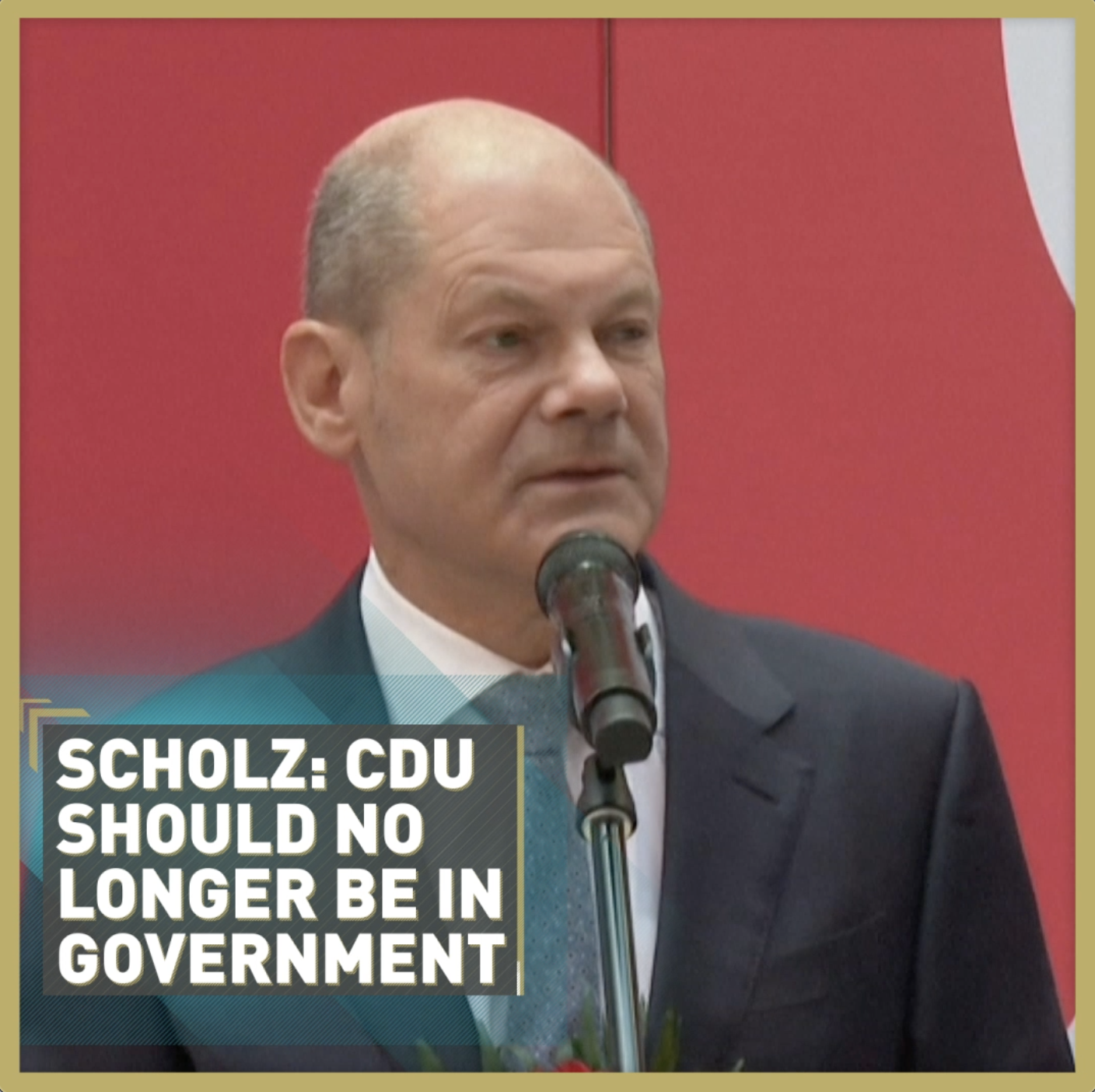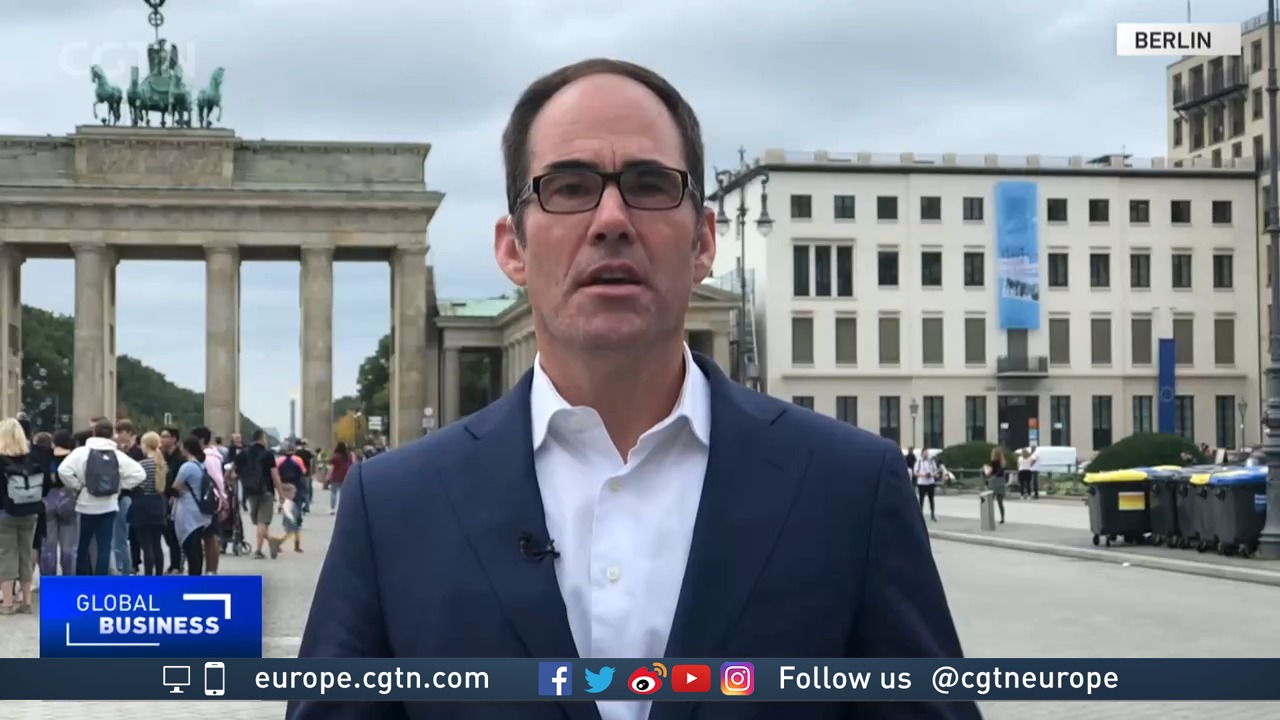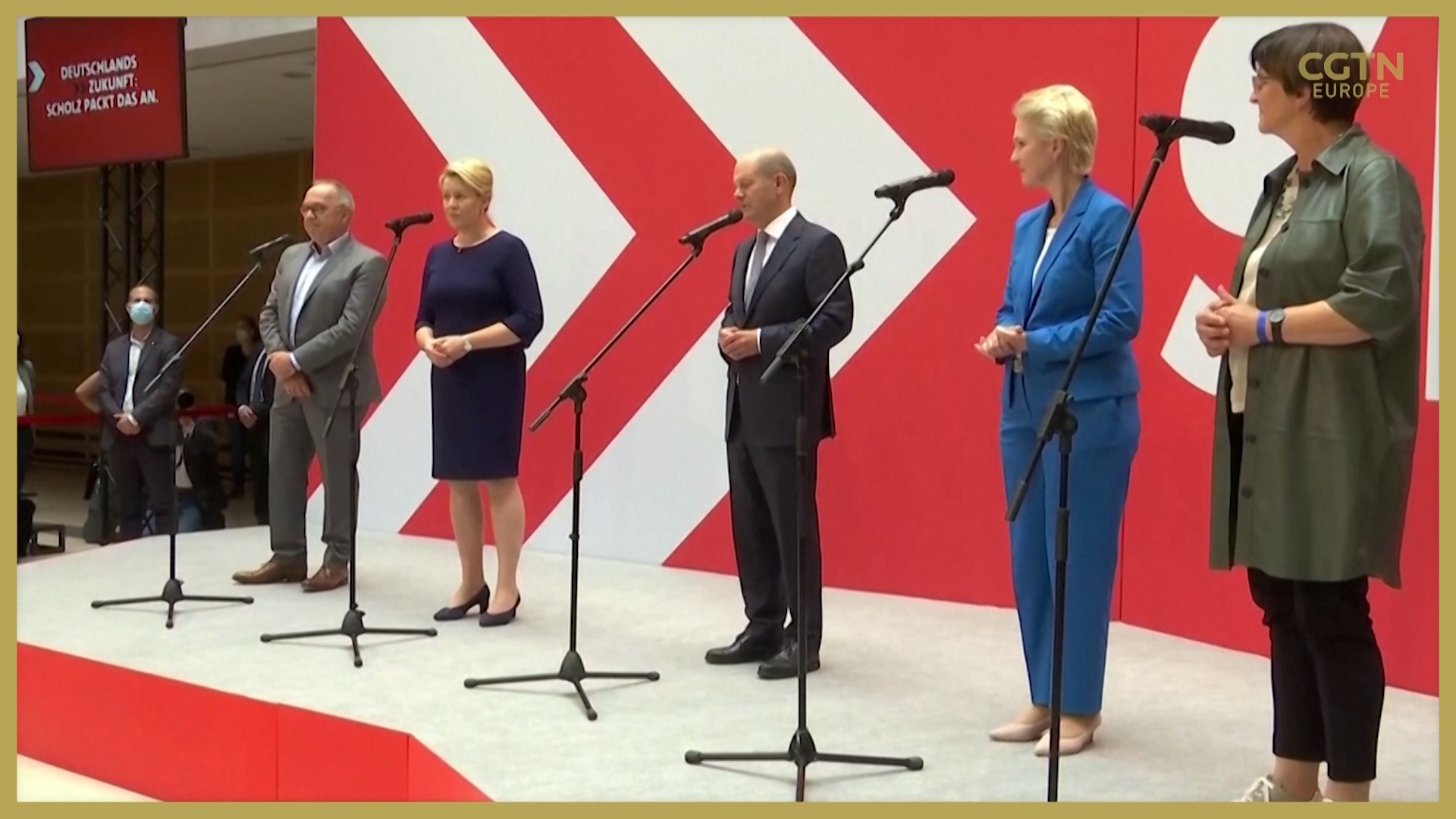00:43

Olaf Scholz will start negotiations to build a coalition that would allow him to replace Angela Merkel as German chancellor after preliminary results showed him edging out her party in a tightly fought election.
Figures released by the national election commission showed Scholz's center-left Social Democratic Party (SPD) overtaking the outgoing Merkel's Christian Social Democrats and their Christian Social Union sister party (CDU/CSU) with just over a quarter of the vote.
Scholz described the results as a "mandate" for his party that indicates German voters are looking for a change.
"This is a mandate to ensure that everything that was discussed in this election and that we have proposed is also implemented," he said to supporters on Sunday evening.
He will need to negotiate a coalition to secure a majority in the Bundestag, with CDU rival Armin Laschet attempting simultaneously to do the same.
The Greens appear to have gained around 51 seats while the free-market Free Democratic Party (FDP) were placed a little over 11%, meaning the two together could likely form a majority government with either of the frontrunners.

The most obvious combination now would be for the SDP to seek a deal with the Greens and FDP because The Left party do not have enough seats to replace either in a majority government. All of the major parties have ruled out working with the far right Alternative for Germany (AfD). This would be the first three-way coalition in modern German history and the negotiations are therefore expected to take weeks or months.
On behalf of the CDU, which has led Germany since 2006, secretary Paul Ziemiak admitted that the "losses are bitter compared to the last election." And, speaking after the polls closed, Laschet thanked Merkel for her support but lamented the "difficult" election fight with a retiring incumbent. He pointed out that the chancellor need not come from the biggest party, but simply needs a majority in the country's parliament.
Merkel will continue her 16-year occupation of Germany's top job until the Bundestag agrees on her successor.
As well as retiring as chancellor, she did not run for the constituency seat she has held since 1990 this time around. In a symbolic blow, her party lost it to the SDP.
WATCH: CARSTEN BRZESKI ON THE IMPACT OF COALITION TALKS
02:42

The preliminary results show the conservative joint-parties, the CDU and CSU, on track for their worst result since 1945. It's the first time they have dipped under 30 percent support.
"The result is very bad for the CDU, unacceptable. The CDU's ambition is always to field the chancellor," CDU member Gereon Stieler said.
On the other hand, the SPD is looking to take the Chancellory after 12 years of being junior partners of the CSU/CDU government led by Merkel.
"After 16 years, social democracy could be the strongest force in Germany again, and that is a reason to celebrate," Sebastian Niestroj, an SPD supporter told AFP.
WATCH: OLAF SCHOLZ AND ARMIN LASCHET RESPOND TO ELECTION RESULTS
02:32

What happens next?
Under the German system, any parties can negotiate with each other immediately about the possibility of a coalition. It is possible, and has historically occurred, that the biggest party following the election does not form part of the government.
Negotiations can take weeks, or even months, during which time the outgoing government remains in post. Once a coalition is formed, the Bundestag will vote for the new Chancellor. If no coalition agreement is reached, the president can still nominate a chancellor to the parliament who can approve him or her to lead a minority government.
Cover image: Christof Stache/AFP

